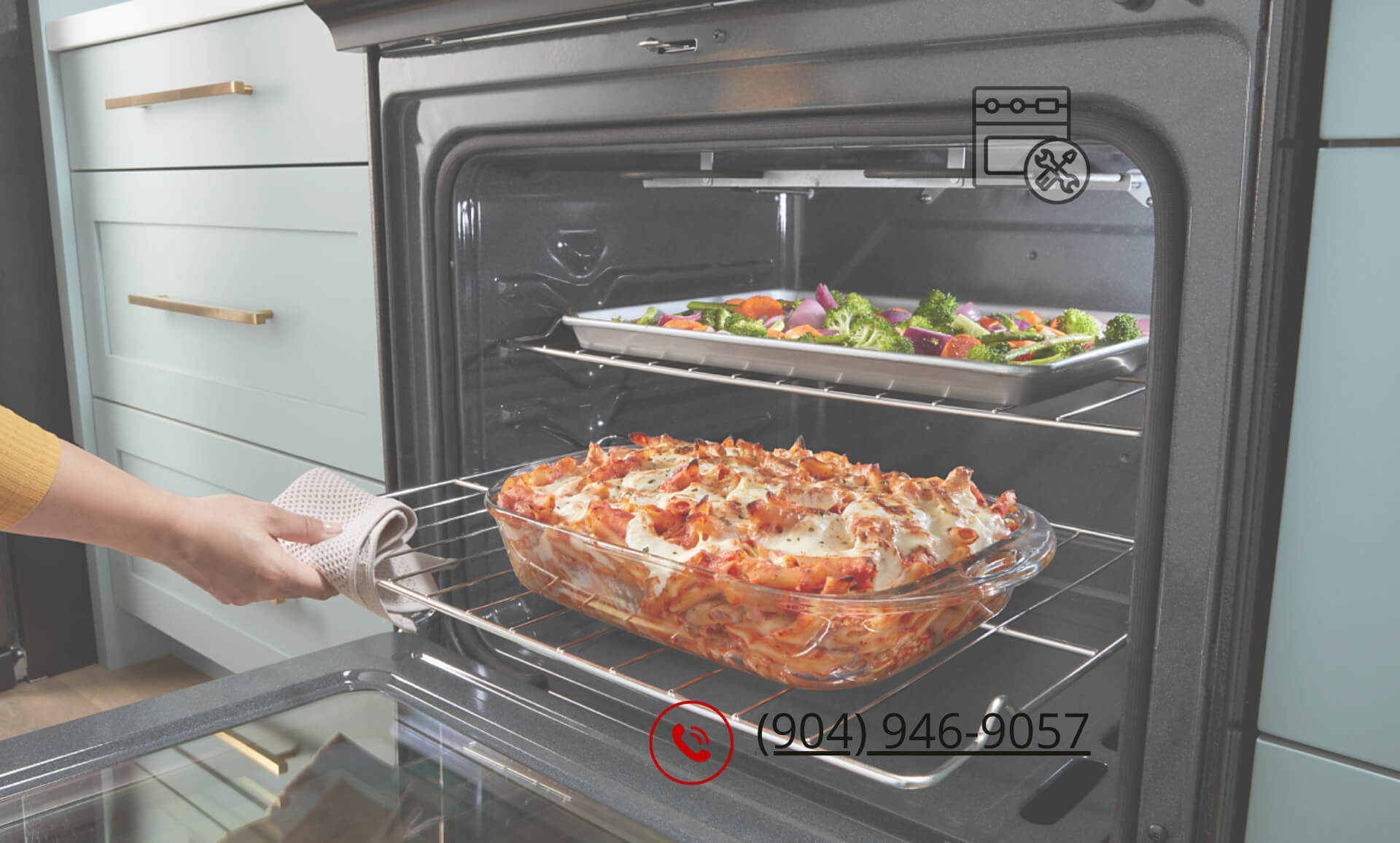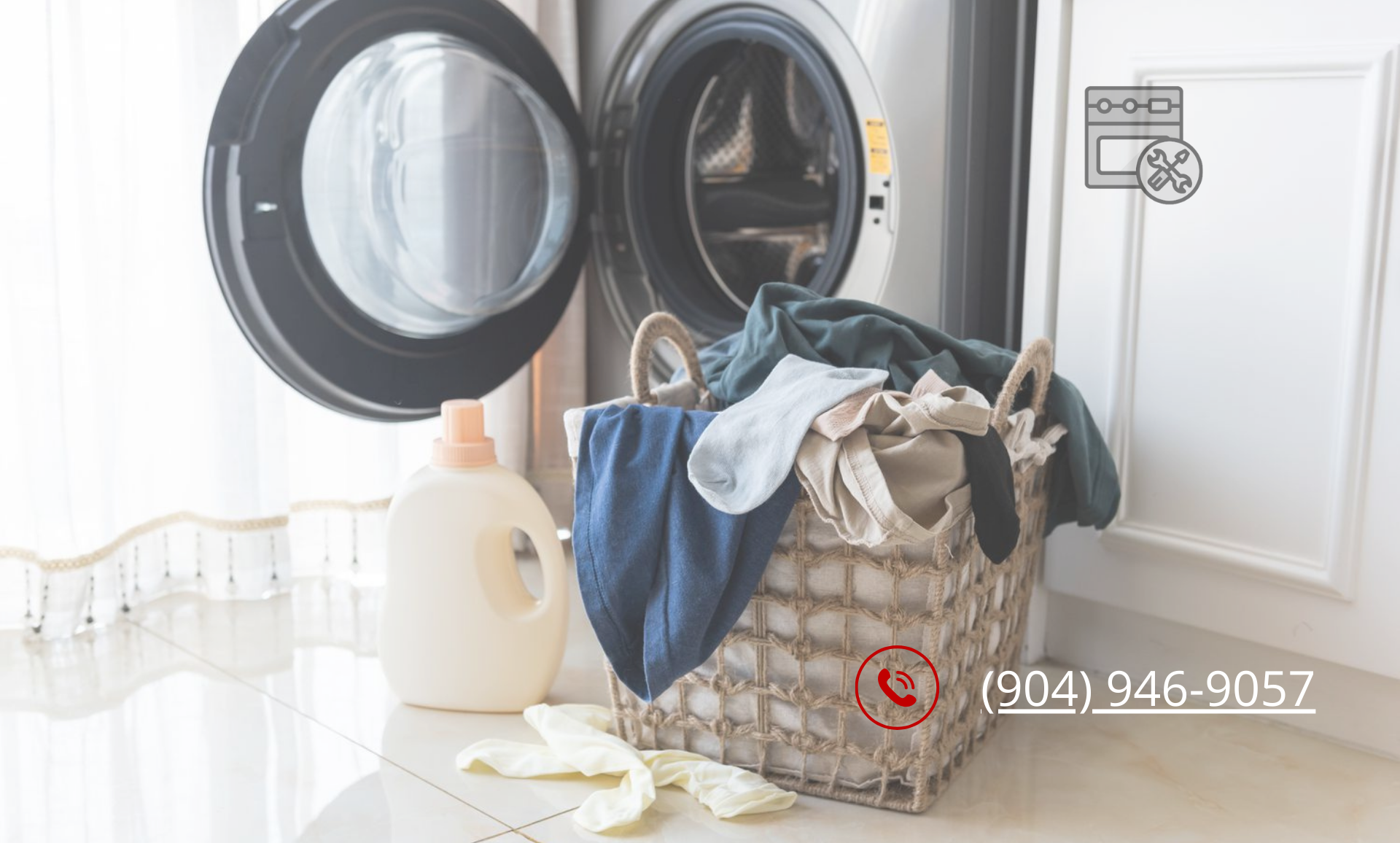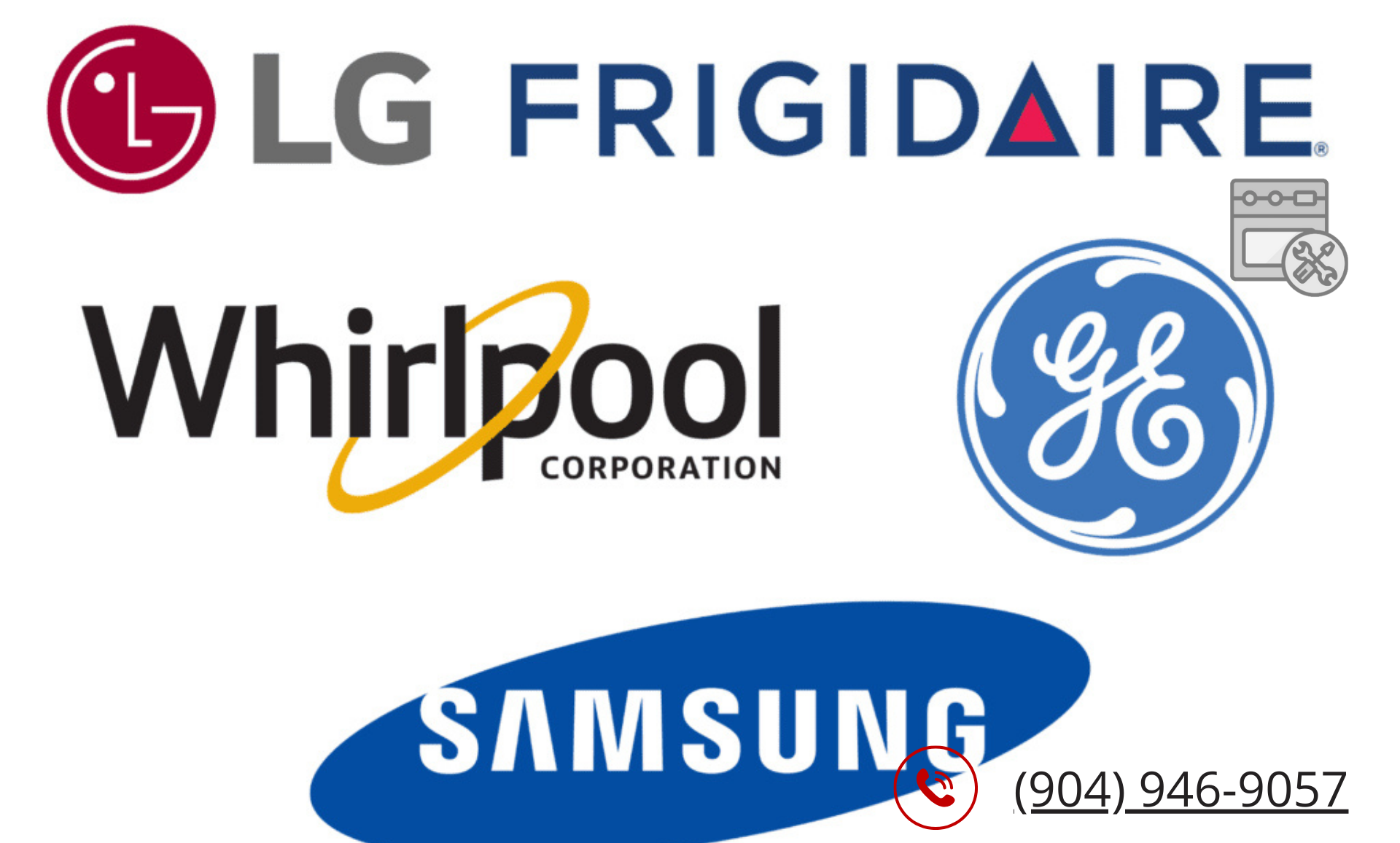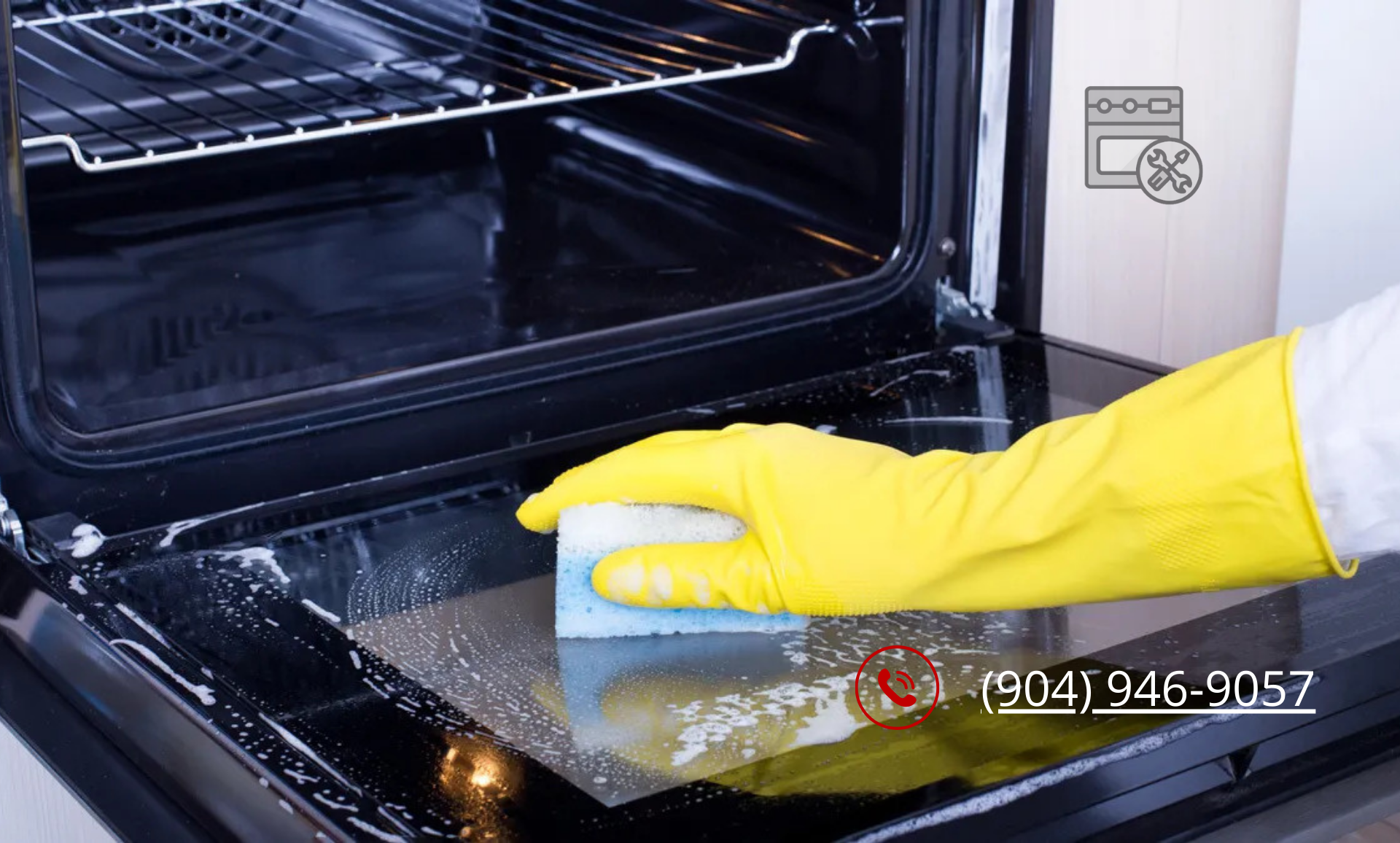If you live in Florida, you know how often the oven becomes the heart of family gatherings, barbecue season, and traditional home-cooked meals. In these households, it’s essential that your appliance works reliably and that cleaning it doesn’t damage sensitive sensors or heating elements.
The humid climate and salty coastal air can accelerate grease and grime buildup, which makes knowing safe oven cleaning methods especially important for St. Augustine residents. Proper care not only extends the life of your oven but also ensures the food you prepare is safe and healthy for your family.
In this article, we’ll show you how to clean your oven safely using simple, accessible methods. You’ll learn how to keep your oven spotless without harsh chemicals, protecting delicate components – all with tips tailored specifically for Florida homes.
Why Safe Oven Cleaning Matters in St. Augustine Homes
Living in St. Augustine means dealing with high humidity and salty coastal air – conditions that can accelerate corrosion and affect the sensitive electronics inside your oven. Over time, this can compromise heating elements, sensors, and other components, leading to costly repairs or even appliance failure.
Using harsh chemical cleaners in these conditions can make matters worse. Strong fumes can linger in the home, and aggressive substances may damage delicate oven parts, especially in tightly sealed kitchens during humid months.
That’s why it’s so important to focus on how to clean your oven without chemicals. By using gentle, safe methods, you can remove grease and buildup effectively while protecting your oven’s sensors and electronics, ensuring it continues to operate efficiently for years to come.
How Often Should You Clean Your Oven in St. Augustine
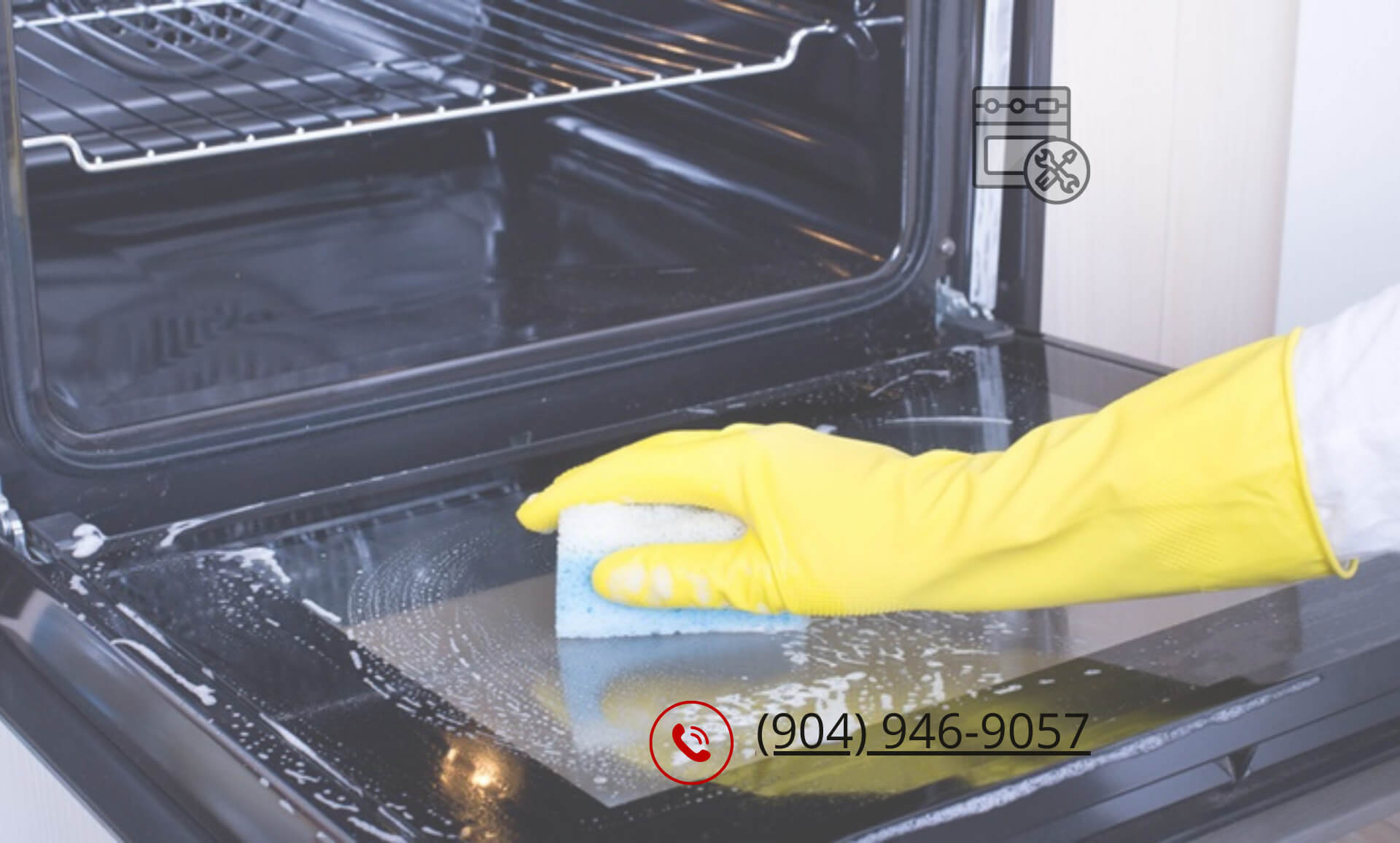
If you’re wondering how often should you clean your oven, the answer depends on usage and local conditions. In St. Augustine, ovens tend to be used more frequently during summer months and tourist season when families host gatherings, barbecues, and holiday meals.
The region’s high humidity also means grease, food residue, and odors can build up faster than in drier climates. For residents here, it’s a good idea to clean your oven every 2–3 months, rather than the standard 3–6 month recommendation, to keep it performing at its best and prevent unpleasant smells from developing.
Regular maintenance ensures your oven stays hygienic and helps protect heating elements and sensors, reducing the risk of damage and costly repairs. By keeping up with consistent cleaning, you can enjoy safe and efficient cooking year-round in your St. Augustine home.
How to Clean Oven Without Chemicals
For homeowners in St. Augustine, it’s especially important to know how to clean your oven without chemicals. The combination of high humidity and air-conditioned indoor spaces can cause harsh chemical fumes to linger, which isn’t ideal for your family or pets.
Fortunately, there are plenty of natural alternatives that are both safe and effective. Ingredients you likely already have in your kitchen – baking soda, vinegar, and lemon – can tackle grease, burnt-on food, and odors without compromising your oven’s sensitive sensors or heating elements.
Using these gentle solutions allows you to maintain a spotless oven while protecting your home environment. Not only do they clean effectively, but they also minimize health risks and are environmentally friendly – a perfect fit for households in St. Augustine looking for safe oven cleaning methods.
Baking Soda and Vinegar Oven Cleaning
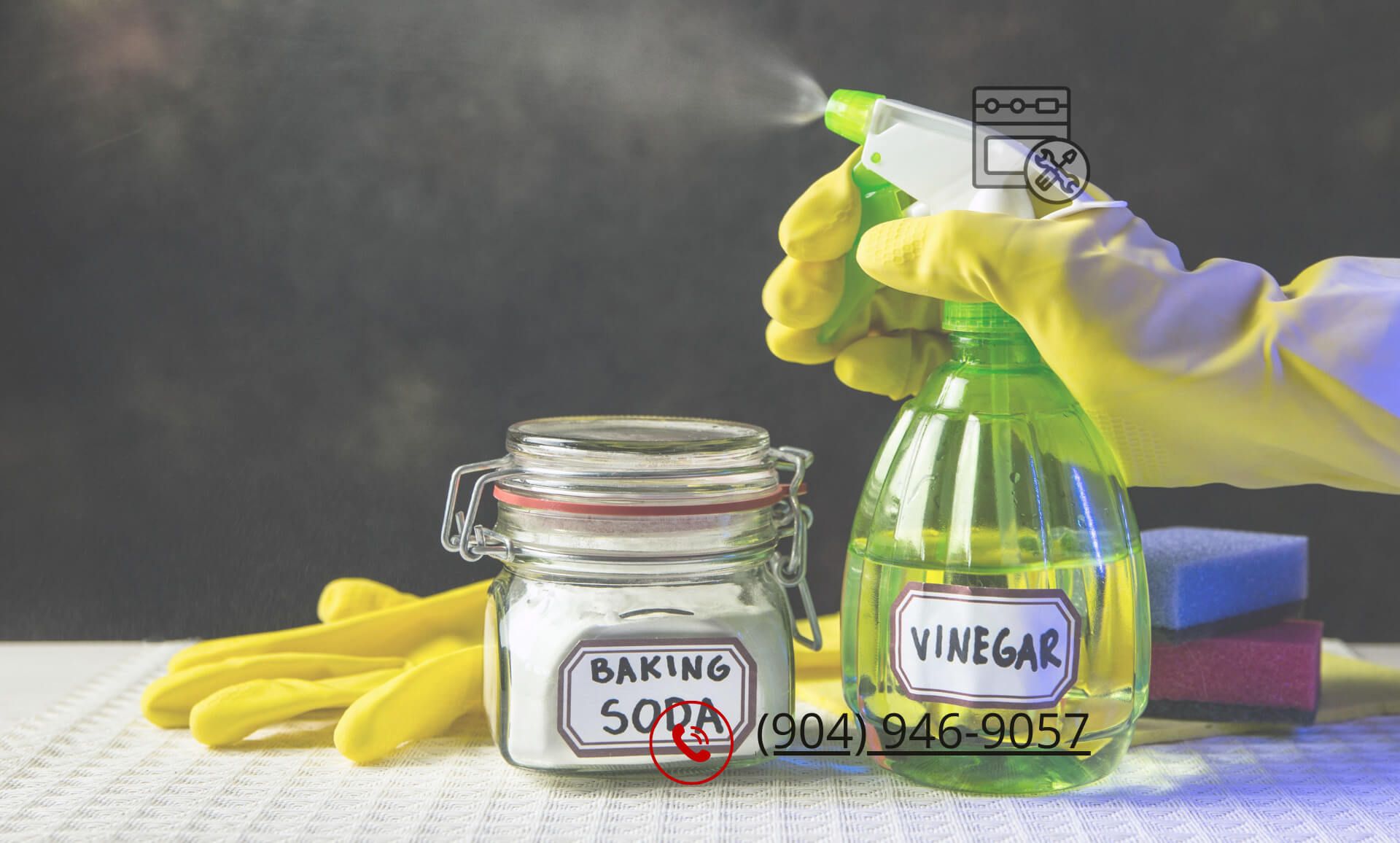
One of the most effective safe oven cleaning methods is using a baking soda and vinegar oven cleaning approach. This method is gentle on sensitive sensors and heating elements while still tackling stubborn grease and burnt-on food.
To start, create a baking soda paste for oven cleaning by mixing baking soda with a small amount of water until it forms a spreadable consistency. Apply the paste evenly across the interior surfaces of your oven, avoiding direct contact with heating elements and sensors. Let it sit for several hours or overnight to loosen grime.
Once the paste has done its work, lightly spray vinegar over the baking soda. The reaction will help break down remaining residue, making it easier to wipe clean with a damp cloth. For St. Augustine residents, a practical tip is to perform this cleaning in the evening when the kitchen is cooler – this helps reduce lingering odors in the humid Florida air.
By following this method, you can keep your oven spotless and fully functional without exposing your home to harsh chemicals.
Best Way to Clean Electric Oven in St. Augustine
If you’re looking for the best way to clean an electric oven in St. Augustine, it’s important to consider the local climate. High humidity and salty air can accelerate buildup on oven surfaces, so regular maintenance is key to keeping your appliance in top condition.
When cleaning an electric oven, avoid pouring water directly onto heating elements or sensors, and don’t use abrasive sponges or metal scrapers, as these can damage sensitive components.
Instead, stick to gentle, safe methods such as applying a baking soda paste for oven cleaning or using a mild vinegar solution. Wipe down interior surfaces with a soft cloth, and clean racks separately with mild soap and water. These practices protect your oven’s electronics, extend its lifespan, and ensure it continues to cook evenly for years to come.
Safe Oven Cleaning Methods
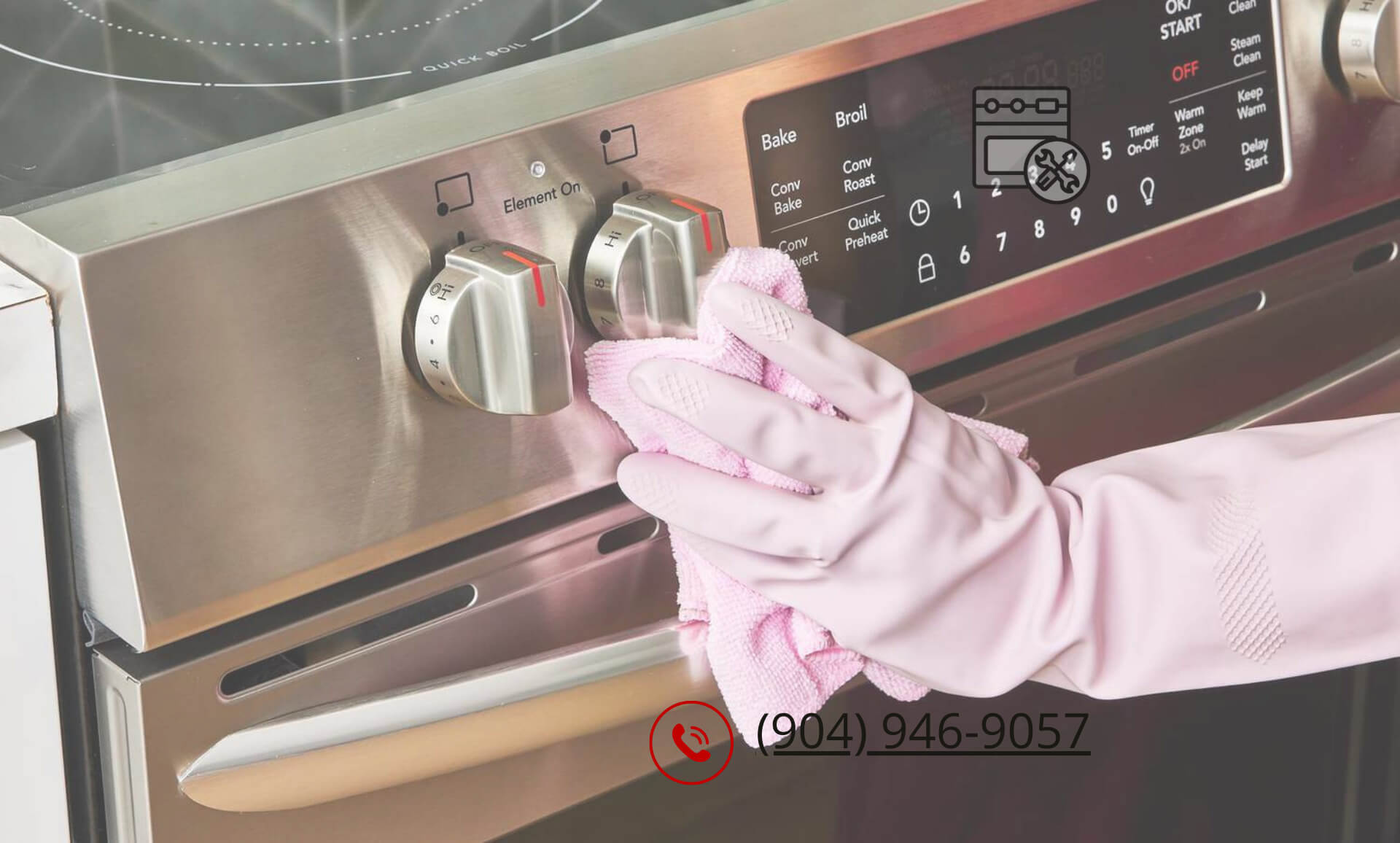
For homeowners in St. Augustine, there are several safe oven cleaning methods that work particularly well in humid, coastal conditions:
- Baking Soda and Vinegar: Creates a natural cleaning paste that removes grease and baked-on residue without harsh chemicals – ideal for both regular maintenance and deep cleans.
- Lemon Steam Cleaning: Place a few lemon slices in a heatproof dish with water, then heat the oven to create steam. The acidity helps loosen grime and leaves a fresh scent, perfect for eco-conscious households.
- Quick Post-Cooking Wipes: Seafood and other coastal dishes are common in St. Augustine. Wiping the oven interior lightly after each use prevents buildup and makes deep cleaning easier.
By rotating these methods, you can maintain a clean, efficient oven year-round without risking damage or exposure to toxic chemicals.
How to Clean Oven Safely
Knowing how to clean your oven safely is essential, especially in St. Augustine, where humidity and coastal air can affect appliance performance. Follow this simple checklist:
- Unplug the oven or turn off power to prevent electrical issues.
- Allow the oven to cool completely to avoid burns and protect sensitive components.
- Remove oven racks and trays to clean them separately and make the interior more accessible.
When cleaning, be careful around heating elements and sensors – never scrub them directly or apply excessive moisture. Instead, use gentle solutions like a baking soda paste or a mild vinegar mixture applied with a soft cloth.
For St. Augustine residents, cleaning the oven in the morning or evening, when humidity is lower, helps prevent streaks, reduces lingering odors, and ensures the process is as effective as possible.
Local Maintenance Tips for St. Augustine Residents
Maintaining a clean oven in St. Augustine doesn’t have to be complicated. A few simple habits can help protect your appliance from humidity, coastal air, and everyday cooking:
- Use baking sheets and oven liners: Protects surfaces from spills and burnt-on food.
- Wipe the oven after cooking seafood or coastal dishes: Prevents lingering odors and residue.
- Perform light, regular cleaning: Even a gentle wipe-down every week or two prevents buildup of salt, grease, and grime.
Incorporating these habits extends the life of your oven, protects sensitive components, and keeps your kitchen cleaner – all without harsh chemicals.
Keeping your oven clean doesn’t have to mean using harsh chemicals or risking damage to sensitive components. In St. Augustine, adopting safe, chemical-free cleaning methods is the best way to extend the life of your appliance while ensuring it continues to perform reliably.
By following the tips in this article – from baking soda and vinegar oven cleaning to gentle maintenance habits – you can maintain a spotless, efficient oven that’s ready for every family gathering, barbecue, or holiday meal.
If you ever need professional assistance or have questions about maintaining your oven, our team is ready to help. Contact us today to schedule a service or get expert advice tailored to your appliance.
